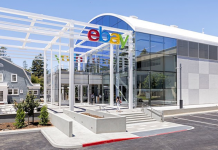Tom Konrad, CFA
LB Foster (FSTR) may not succeed in their attempt to buy Portec Rail Products (PRPX) unless they raise the offer price.
As a Portec Rail Products (PRPX) shareholder since 2007, I’ve been watching the saga of L.B Foster’s (FSTR) attempt to buy the company fairly closely, and it’s been a lot more interesting than we could expect. I’ve put together a detailed time line at the end of this article.
Offer Premium
The tender offer came at only a 4% premium compared to the price the day before it was announced, leading to a spate of class action lawsuits alleging that the Portec board did not do enough to get the best possible price for the company.
Most analysts agree that the previous close is a poor measure of the value the market places on a company. The first reason not to use the closing price from on the previous day is often biased upwards when if rumors of the impending merger leak out, and investors buy on this insider information. Although such insider trading is illegal, my observation of stock price movements convinces me that it happens frequently. In the case of Portec, the quick price rise right before the merger was announced at the same time that most stocks were falling and there was no significant news also leads me to believe that some investors were buying the company on the basis of rumors or insider knowledge. The second reason against using the previous day’s close is simple volatility: Had other trading prices from the previous day been used instead of the closing price, the offer premium could have been calculated as anywhere between 4% and 10%.
A better way to calculate an offer premium is to use the average price of the stock over the previous month or two. Using this method, the actual offer premium was between 8.5% and 10.4%, which is still low but not alarmingly low. A 20% premium is typical.
Class Action Lawsuits
The low offer premium led to a number of class action lawsuits against the Portec board, alleging that they had not fulfilled their fiduciary duty to find the best possible price for shareholders. I initially opposed these lawsuits and suggested that shareholders unhappy with the price should not tender their shares, rather than joining a lawsuit. However, the lawsuits ended up doing some good: it came out during the proceedings that Portec had received a slightly higher ($12.00) verbal offer from Ameridan Resources LLC, a merger and acquisition specialist firm. The judge in the case found that the chairman of the board had breached his fiduciary duty in not bringing this offer to the board’s attention, and put a temporary hold on the merger, which Foster and Portec recently filed a motion to have released.
Shares Tendered

According to the terms of the offer, 65% of Portec shares must be tendered in order for the deal to go through. The companies initially expected to have enough shares tendered by March 25, but shareholder take-up has not been sufficient. The companies have now extended the tender offer three times. As of May 28, they still needed 6% of outstanding shares to be tendered in order for the deal to go through.
Will more than 65% of outstanding shares be tendered? It looks too close to call. But having enough shares tendered is not enough to ensure the merger goes through. The judge in the class action suits must also lift her injunction against the merger. She may not be willing to do so unless Foster raises the offer price to at least the $12 offered by Ameridan.
Conclusion
My best guess is that L.B. Foster will either raise their offer to appease the judge and entice shareholders to tender more shares, or the deal will not go through, opening the door to other potential bidders. With no net debt and solid operating cash flow, Portec has a strong bargaining position, and the board is likely to be much more careful about their fiduciary duty after this experience.
With Portec stock currently trading around $11.40, new purchasers would make a quick 5% profit in the case of a takeover at $12, or a 3% profit if the deal goes thorough as is. Since I’ve liked the company’s business for a long time (see here and here), I’m holding my (untendered) shares in the hopes of a better offer or the chance to continue holding Portec for the long term.
DISCLOSURE: LONG PRPX.
DISCLAIMER: The information and trades provided here are for informational purposes only and are not a solicitation to buy or sell any of these securities. Investing involves substantial risk and you should evaluate your own risk levels before you make any investment. Past results are not an indication of future performance. Please take the time to read the full disclaimer here.
L.B. Foster/Portec Rail Products Tender Offer Time Line
- June 2009. LB.Foster approaches Portec to negotiate a buy-out.
- June-December 2009: negotiations between Foster and one Portec board member. Most board members are not aware of the negotiations. Portec shares trade between $8.50 and $10.80.
- Dec 18, 2009- February 16, 2009: Portec average closing share price $10.60.
- Jan 17- Feb 16: Portec average closing share price $10.79.
- Feb 17: L.B. Foster announces offer at $11.71/share, a 10.4% premium over $10.60, and a 8.5% premium over $10.79. News reports call it a 4% premium (over the previous day’s close.)
- Feb 17-19: Several class action suits filed alleging board did not work hard enough seeking a higher offer.
- Feb 19: I recommend against joining a lawsuit saying not tendering shares is sufficient.
- March 1-March 21: In anticipation of dividend, tax loss buyers drive Portec to $11.73 to $11.76 a share. They probably hoped to sell a month later, capturing the $0.06 dividend (subject to a reduced tax rate) and taking a capital loss of $0.0
6 or less, which can be written off against short term gains. - March 12: Portec announces regular $0.06 quarterly dividend.
- March 22: ex-dividend date.
- March 22: L.B. Foster extends tender offer until April 26. Only 16.55% of outstanding shares have been tendered; 65% are needed.
- March 22: Second inquiry from US Dept. of Justice looking into the merger negotiations.
- March 22-April 22: Investors begin to question likelihood of merger. Tax loss sellers take much bigger losses than they expect as Portec falls from $11.67/share to as low as $11.33/share.
- March 25: Tender offer initially set to expire.
- April 22: Judge in class action cases puts temporary stop to the merger. Reveals that Marshall Reynolds, Portec’s Board chairman failed to bring tell other board members about a $12 offer from Ameridan Resources LLC. Says Reynolds breached his fiduciary duties. Only one member of the board was aware or involved in merger negotiations between June and December 2009.
- April 22-26: Portec trades over offer price, and as high as Ameridan $12 offer on speculation that Foster will raise its offer or Ameridan will purchase the company.
- April 26: Offer again extended (to June 1). 54.33% of shares have been tendered; 65% are needed.
- May 13: Dept. of Justice will not block merger on anitcompetitive grounds. L.B. Foster agrees not to go ahead w/ merger without DOJ approval. Drop-dead date extended to August 31.
- May 21: Foster, Portec file motion to restart merger in class action case.
- May 28: Third offer extension to July 30. 58.93% of shares have been tendered.
- June 18: Expected ex-dividend date for Portec’s quarterly $0.06 dividend.
- Aug 31: Drop-dead date: last day the merger can proceed without a new agreement between the companies.








Thanks very much for this information. We’re invested in PRPX but don’t have the time or expertise to do due diligence as needed. So we rely on your updates.